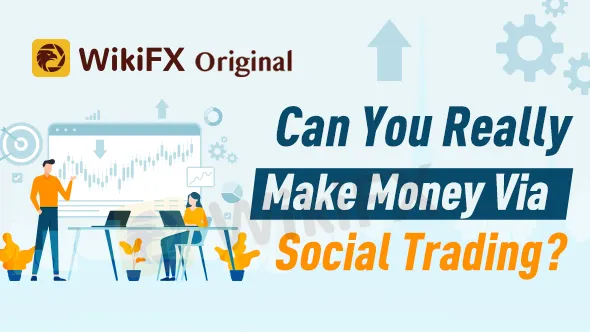Abstract:Social trading is a type of investing that allows investors to observe their peers and expert traders' trading behavior. The primary goal is to replicate their investment strategies through copy trading or mirror trading.

Social trading requires little or no knowledge of financial markets and has been described as a low-cost, high-return investment strategy as long as they managed to find a reliable forex broker, and a consistently profitable money manager that has a sound risk management system in place. A few common examples of social trading are PAMM, MAM, and LAMM which were previously covered by WikiFX.

Read more: https://www.wikifx.com/en/newsdetail/202207183254743592.html

Read more: https://www.wikifx.com/en/newsdetail/202207214164499369.html

Read more: https://www.wikifx.com/en/newsdetail/202208031044391671.html
Now the million-dollar question is:
Can one really make money off social trading?
We hate to burst your bubble but the answer is “it depends”.
There are many factors to take into consideration when engaging in social trading.

Although you can just leave your money to the money manager to trade for you, it is important to first do your due diligence before any form of investment, natch. This includes finding a trustworthy forex broker and a responsible money manager. Many beginners come into the forex market thinking of making quick profits, so they overlook this important process, which could be detrimental to them, especially when their funds end up in the hands of fraudulent forex brokers.
A lot depends on the broker and the platform that youve chosen. You should consider the platforms with the regulation in one of the countries with a developed legal system (for example the UK, Cyprus, Australia, USA) and statistics that are transparent for analysis.
Social trading on Forex from the worlds top brokers is safe and the key risks, as a rule, lie in the trading itself. However, scam brokers often also offer social trading, seeing as the popularity of the service is growing. Scam brokers are, as a rule, not regulated, do not specify the risks, and overstate the potential of the profit.

To reduce the risk of such unfortunate events, download the free WikiFX mobile application on Google Play / App Store, or visit www.wikifx.com to conduct a research on your selected forex brokers before proceeding with any social trading services.
At the end of it all, there is a compromise that a trader who engages in social trading needs to accept. It could be earning a smaller profit in exchange for not investing the time to learn to trade, or it could be having the profits and capital burnt entirely by going with the wrong forex broker or a money manager.
Either way, if one is looking to maximize his profits in forex trading, the ultimate way is to pick up the skill himself and get consistent with sharpening this skill to be successful in the long run.















